Last updated: November 28, 2023
Any links on this page that lead to products on Amazon are affiliate links and I earn a commission if you make a purchase. Thanks in advance – I really appreciate it!
Do horses get fleas? Horse owners often ask this question. Although it’s uncommon, horses can indeed get fleas. Horses, unlike pets such as dogs and cats, don’t usually have many fleas. This is because fleas often choose animals that live in smaller, enclosed spaces, which is not typical for horses.
However, this doesn’t mean horses are completely safe from fleas. It’s important to know that horses can still be affected by these pests and also by others like ticks, lice, and mites. When horses do get fleas, a thorough wash with flea shampoo is a good solution.
Here is a comparison table detailing the differences between fleas, lice, and mites in terms of risk, symptoms, and treatments in horses:
| Pest | Risk | Symptoms | Treatments |
|---|---|---|---|
| Fleas | Rare, more likely if in contact with other flea-infested animals | Itching, scratching, visible fleas or flea dirt, hair loss, skin irritation | Flea shampoos, environmental control, preventive measures |
| Lice | Common in winter, especially in crowded conditions | Itching, rubbing, visible lice or nits on hair, hair loss, skin irritation | Medicated shampoos, environmental cleaning, isolation and treatment |
| Mites | Varies by type, can be more serious in horses with weakened immune systems | Depends on mite type: itching, hair loss, scaly skin, lesions, possible lameness | Topical treatments, environmental control, isolation, veterinary guidance |
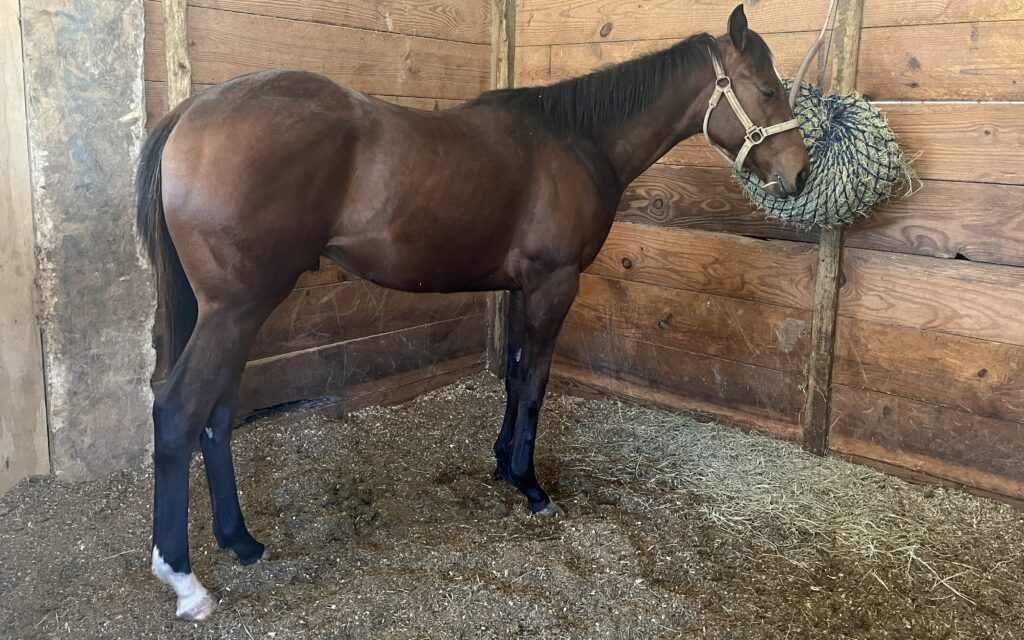
Understanding Fleas and Horses
Fleas are tiny, dark-colored insects that survive by feeding on the blood of animals, including pets and wildlife. They are known for their incredible jumping ability, which helps them move from one host to another.
Unlike many other insects, fleas do not have wings, but they make up for this with their powerful legs that allow them to jump long distances relative to their size. This jumping ability is often how they find their way onto animals.
When it comes to horses, it’s quite rare for them to have flea problems. This rarity is due to a few reasons. Firstly, fleas prefer hosts that return to the same spot to rest, like the beds or nests of cats and dogs. Horses, on the other hand, are more active and do not confine themselves to such small, enclosed spaces. Secondly, the body temperature and the type of hair on a horse’s body are not as ideal for fleas as those of other animals.
However, there are certain situations where horses might be at risk of flea infestation. For example, if a horse is kept in a stable or barn that also houses other animals like dogs or cats, fleas might transfer from these pets to the horse.
Another scenario could be when a horse comes into close contact with wild animals that are carriers of fleas. This could happen in pastures or fields near wooded areas where wildlife is abundant. In such cases, fleas might jump onto horses as alternative hosts.
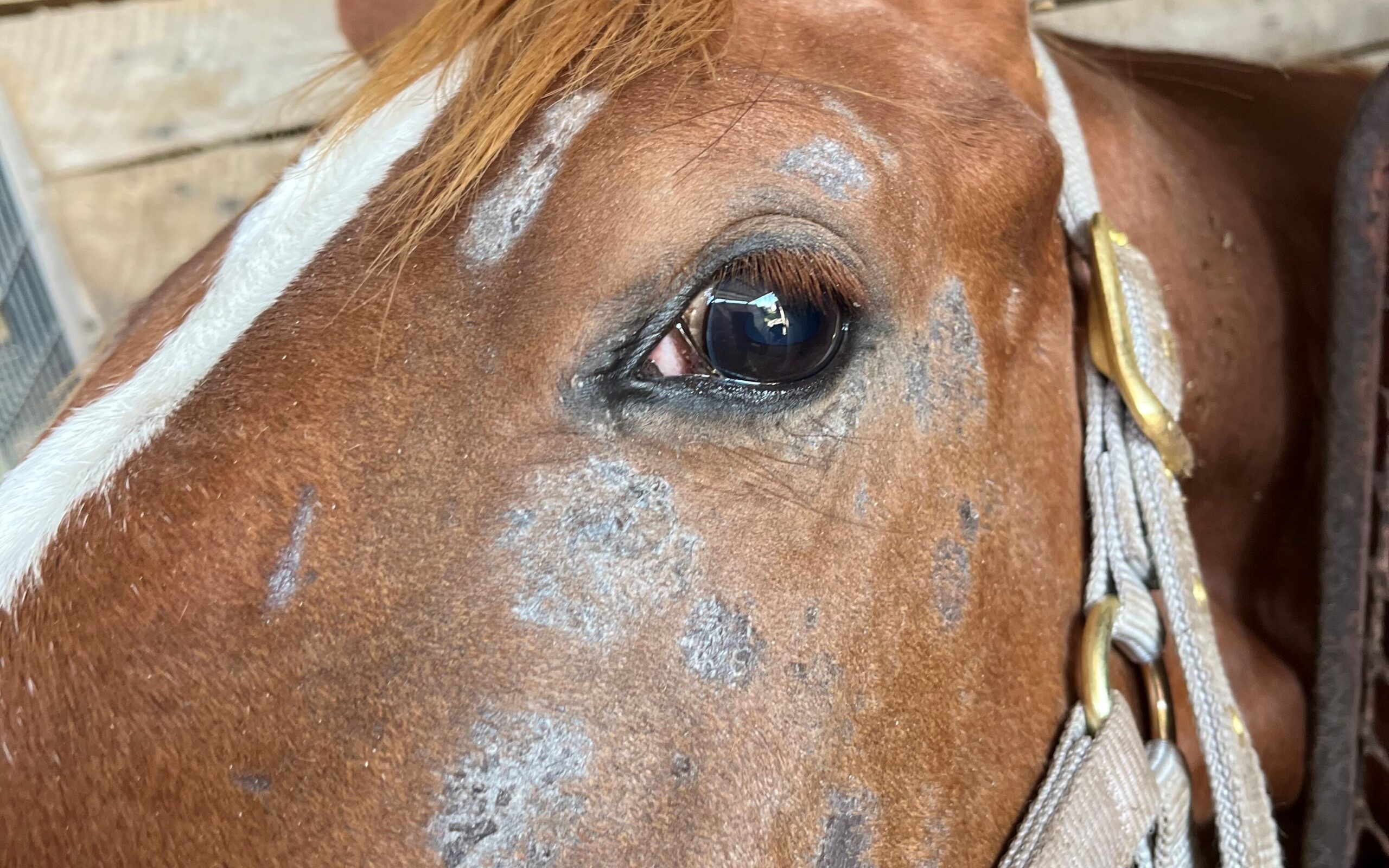
The Reality of Fleas on Horses
While it’s rare for horses to get fleas, it’s not impossible. Understanding this reality is crucial for horse owners who want to ensure the health and comfort of their animals. Fleas on horses can happen, especially in situations where horses are in close contact with other animals that are more commonly affected by fleas, like dogs and cats.
Signs and Symptoms of Flea Infestation in Horses
If a horse does get fleas, there are several signs you can look for:
- Itching and Scratching: Just like with other animals, one of the first signs of flea infestation in horses is increased itching and scratching. The horse may seem more restless than usual and try to rub against objects to relieve the itch.
- Visible Fleas or Flea Dirt: Fleas are small and fast, making them hard to spot. However, you might see tiny, dark insects in the horse’s coat, or what is known as ‘flea dirt’ – small black specks that are actually flea feces.
- Hair Loss and Skin Irritation: Persistent scratching can lead to hair loss and visible irritation on the horse’s skin, including redness and bumps.
- Behavioral Changes: A horse with a flea infestation might show changes in behavior due to discomfort, such as agitation or a lack of focus during training.
Note: Fleas, while typically species-specific, are known for their adaptability and can switch hosts in certain conditions. Cat and dog fleas, for instance, may bite humans or horses, but they generally prefer their specific hosts.
Prevention and Treatment
Prevention is always better than cure when it comes to fleas on horses. Here are some steps you can take:
- Regular Grooming: Regularly grooming your horse helps in the early detection of fleas and maintains the health of their coat and skin.
- Clean Living Environment: Keeping the stables and barns clean and free from other flea-infested animals is crucial in preventing flea infestations.
- Use of Flea Preventatives: Consult with a veterinarian about suitable flea preventatives that are safe for horses. These can include spot-on treatments or oral medications.
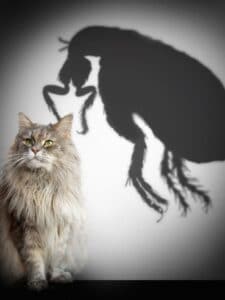
If a flea infestation is detected, treatment should be started promptly:
- Flea Shampoos: There are special flea shampoos available for horses. These shampoos help to kill fleas on contact. It’s important to follow the instructions carefully to ensure the safety and effectiveness of the product.
- Environmental Control: Treating the horse alone isn’t enough; you’ll also need to treat their environment. This includes cleaning and possibly applying flea control products to their stable, bedding, and surrounding areas.
- Follow-up Care: After initial treatment, ongoing monitoring and preventive measures should be continued to ensure the fleas do not return.
Remember, when dealing with chemicals or medicated products, it’s always best to seek advice from a veterinarian to ensure the safety and health of your horse.
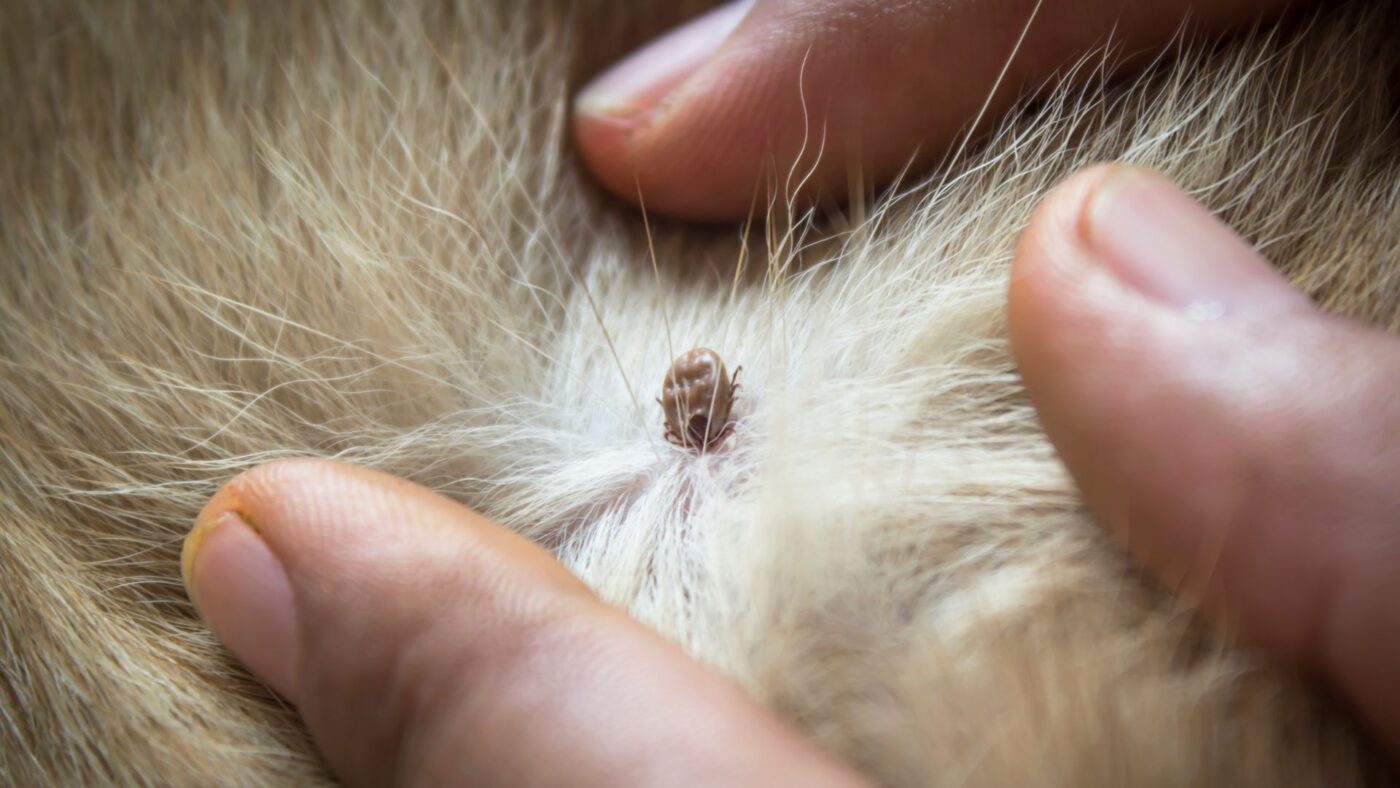
Ticks and Their Impact on Horses
Ticks, unlike fleas, are not insects but arachnids related to spiders and mites. They are larger than fleas and visible to the naked eye. Ticks attach themselves to their hosts to feed on blood, but unlike fleas, they do not jump from one host to another. Instead, they wait in grass or bushes and latch onto animals or humans that brush past them.
Where Horses Might Pick Up Ticks
Horses can pick up ticks in various environments, especially:
- Grassy Fields: Ticks often wait in tall grasses, making pastures a common place for horses to encounter them.
- Wooded Areas: Forested or bushy areas are also prime habitats for ticks.
- Near Water Sources: Areas around ponds, lakes, or streams where horses may go to drink can also be hotspots for tick activity.
Preventing Tick Infestations
Prevention is key in managing tick problems in horses:
- Regular Inspections: Check your horse for ticks daily, especially during the warmer months when ticks are most active. Pay special attention to hidden areas like under the mane, tail, and around the ears.
- Maintain the Environment: Keep pastures trimmed and remove excess brush to minimize tick habitats. If your horse frequents wooded areas, consider creating barriers or clear zones.
- Use of Tick Repellents: There are various tick repellents and preventatives available that are safe for horses. These can include spot-on treatments, sprays, or even feed-through options that help deter ticks. Always consult a veterinarian before using any products.
Removing Ticks from Horses
If you find a tick on your horse, it’s important to remove it promptly and correctly:
- Safe Removal: Use fine-tipped tweezers to grasp the tick as close to the skin’s surface as possible. Pull upward with steady, even pressure. Avoid twisting or jerking the tick, as this can cause parts of the tick to break off and remain in the skin.
- Disinfect the Area: After removing the tick, clean the bite area and your hands with rubbing alcohol, an iodine scrub, or soap and water.
- Dispose of the Tick: Dispose of a live tick by submerging it in alcohol, placing it in a sealed bag/container, wrapping it tightly in tape, or flushing it down the toilet. Never crush a tick with your fingers.
- Monitor for Symptoms: After a tick bite, monitor your horse for signs of illness such as fever, lethargy, or lameness. If you notice any unusual symptoms, contact your veterinarian.
Tick bites can transmit diseases to horses, so prompt and correct removal is vital. Always consult with a veterinarian for the best tick prevention strategies for your specific area and horse.
Below is a YouTube video about horses and ticks.
Dealing with Lice in Horses
Lice are another type of pest that can affect horses. Unlike fleas and ticks, lice are tiny, wingless insects that live on the skin of their hosts. Two types of lice infest horses: biting lice, which feed on the skin and debris, and sucking lice, which feed on the horse’s blood. Lice infestations in horses are most common in the winter months when horses have longer coats and are in closer quarters with each other.
Signs of Lice Infestation in Horses
The signs of a lice infestation in horses can include:
- Itching and Rubbing: One of the first signs is the horse itching or rubbing against objects more than usual.
- Hair Loss: Infested areas may show hair loss or thinning, particularly around the mane, tail, and shoulders.
- Visible Lice or Nits: You might see tiny, moving insects or their eggs (nits) attached to hair shafts. Lice are small but can be seen with the naked eye.
- Skin Irritation: The affected areas may have redness or look irritated.
- Reduced Condition: In severe cases, lice infestations can lead to weight loss, anemia, and a general decline in the horse’s condition.
Treatment and Prevention of Lice in Horses
Effective treatment and preventive measures for lice in horses include:
- Topical Treatments: There are lice treatments available that can be applied directly to the horse’s coat. These usually come in the form of shampoos, powders, or sprays. It’s important to follow the product instructions and repeat the treatment as necessary to ensure all lice and nits are eliminated.
- Cleaning Equipment and Bedding: Lice can spread through contaminated equipment, brushes, and bedding. Clean and disinfect all equipment and change bedding regularly to prevent re-infestation.
- Quarantine New Arrivals: New horses should be quarantined and checked for lice before being introduced to the herd.
- Regular Grooming and Checks: Regular grooming and checking for lice, especially during the colder months, can help catch an infestation early.
- Good Nutrition and Care: Maintaining the overall health and well-being of the horse can make them less susceptible to lice infestations.
Remember, it’s important to treat all horses in close contact with the infested horse to prevent the spread of lice. Consult with a veterinarian to choose the most appropriate treatment for your horses and to address any concerns about lice infestation.
Mites and Their Presence in Equine Life
Mites, like ticks, are small arachnids that can affect horses in various ways. These tiny creatures are often too small to see with the naked eye but can cause significant discomfort and health issues in horses. Mites live on the skin or in the hair follicles and feed on skin cells, blood, or other materials.
Types of Mites and Their Impacts on Horses
Several types of mites can infest horses, each causing different problems:
- Chorioptic Mites: These mites cause a condition known as chorioptic mange, often affecting the legs, particularly around the fetlock (the joint above the hoof). Signs include itching, hair loss, scaly or crusty skin, and, in severe cases, lameness.
- Sarcoptic Mites: These cause sarcoptic mange, which is less common but more serious. They burrow into the skin, causing intense itching, hair loss, and skin thickening. This condition can lead to secondary infections.
- Psoroptic Mites: These mites live on the surface of the skin and cause itching, hair loss, and scab formation. They are often found around the mane and tail but can spread to other body parts.
- Demodectic Mites: These mites live in hair follicles and are usually harmless but can cause problems in horses with weakened immune systems, leading to hair loss and skin lesions.
Treating and Controlling Mites in Horses
Effective treatment and control of mite infestations involve:
- Veterinary Diagnosis: If mites are suspected, a veterinarian can diagnose the specific type of mite and recommend appropriate treatment. This may involve skin scrapings to identify the mites under a microscope.
- Topical Treatments: Medicated shampoos, dips, or spot-on treatments can be effective against mites. It’s important to follow the veterinarian’s instructions and may require multiple applications to completely eradicate the mites.
- Environmental Control: Mites can survive in bedding, tack, and grooming tools, so it’s crucial to thoroughly clean and disinfect the horse’s environment. This includes washing bedding, cleaning stalls, and disinfecting grooming tools.
- Isolation and Treatment of Affected Horses: To prevent the spread of mites, affected horses should be isolated from others until they are fully treated and cleared by a veterinarian.
- Ongoing Monitoring: After treatment, regular checks are important to ensure that the mites have been completely eliminated and to prevent re-infestation.
Preventive measures, such as maintaining good hygiene in stables and regular health check-ups, are also important in managing mite problems. A healthy diet and proper care can help strengthen a horse’s natural defense against these pests.
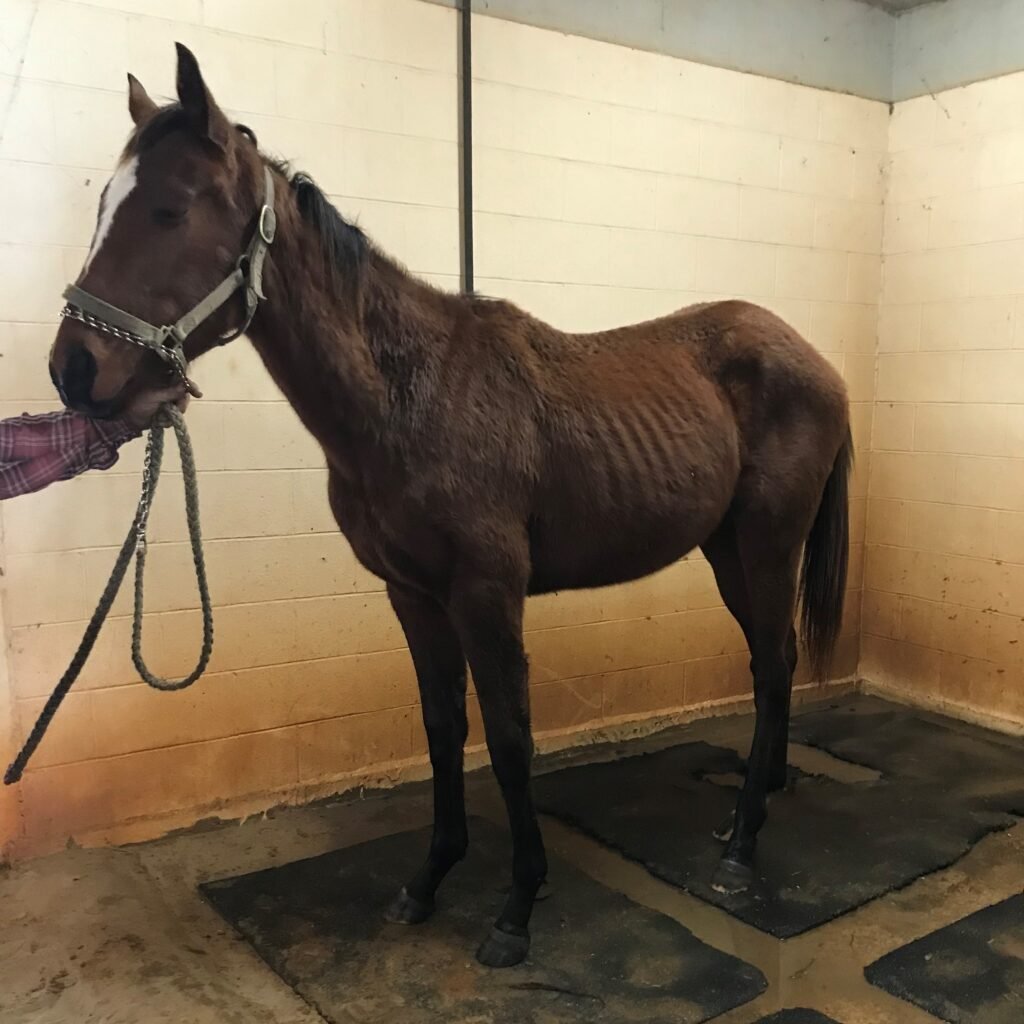
Conclusion: Do Horses Get Fleas
While the question “Do horses get fleas?” brings up a less common concern in equine care, it’s important for horse owners to be aware of the possibility, along with the risks posed by other pests like ticks, lice, and mites. Each of these pests presents unique challenges, but with proper knowledge, preventive measures, and timely treatment, their impact can be effectively managed.
Regular grooming, maintaining a clean environment, and monitoring the health of your horse are key to preventing infestations. In the event of an infestation, prompt treatment with the appropriate products and consulting with a veterinarian are crucial steps. Remember, the well-being of your horse depends not only on addressing immediate health concerns but also on proactive care and prevention.
By staying informed and vigilant, you can ensure your horse remains healthy and free from pests like fleas, ticks, lice, and mites, contributing to a happier and more comfortable life for your equine companion.
FAQs
What are the signs of fleas in horses?
Look for increased scratching, hair loss, and visible fleas or flea dirt in the horse’s coat.
Can horses get fleas from dogs or cats?
Yes, it’s possible, especially if they are in close contact with flea-infested pets.
Are fleas harmful to horses?
No, but fleas can cause discomfort and skin irritation, but they are generally not harmful.

About the Author: Miles Henry
Lifelong Horseman | Racehorse Owner | Published Author
Miles Henry brings over 25 years of hands-on experience training and owning Thoroughbred racehorses. Raised with Quarter Horses and Appaloosas, he’s spent a lifetime learning from horses—on the track, in the barn, and in the field. Today, he runs a small but successful racing stable in Louisiana and shares real-world insights on HorseRacingSense.com, helping horse owners, fans, and bettors navigate the sport with confidence.
📚 Books: View Miles’s books on Amazon »
🎧 Podcast Guest: Animal Tales Ep. 32 |
YouTube Interview
📩 Newsletter: Sign up for racing tips and horse care advice »
🔗 Follow Miles:
Twitter |
Facebook |
YouTube


